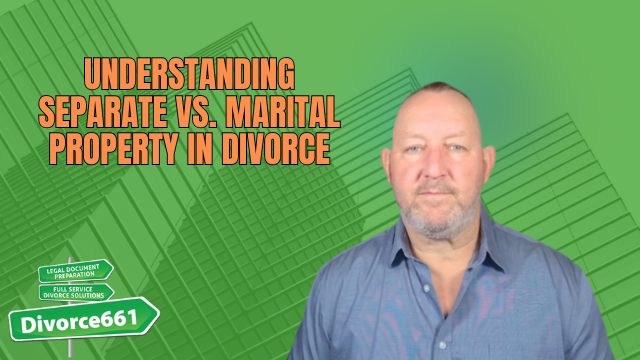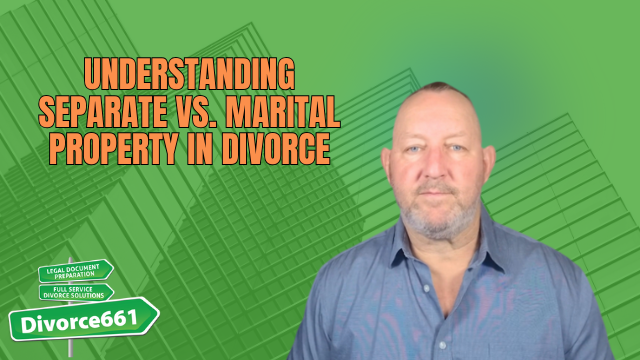How to Protect Your Business in a Divorce Settlement
Going through a divorce can be one of the most challenging times in life, especially for business owners. If you own a business, one of your biggest concerns may be how to protect it during the settlement process. In California, businesses that were started or grown during the marriage are generally considered community property. This means your spouse may be entitled to a share of it. However, there are strategies you can employ to shield your business and ensure a fair outcome.
Understanding Community vs. Separate Property
The first step in protecting your business is determining whether it is classified as separate or community property. If you started your business before the marriage, you might retain some ownership, but any increase in value during the marriage could still be subject to division. Additionally, if your spouse contributed to the business—whether financially or through labor—they may have a stronger claim to a share.
To navigate this complex terrain, it’s crucial to have a clear understanding of the property’s classification. Here are some key factors to consider:
- If the business was established before the marriage but gained significant value during it, the increase may be considered community property.
- If your spouse worked in the business or contributed in any way, their claim to a share may be stronger.
- Inherited businesses are generally considered separate property unless they were commingled with community funds.
The Importance of Business Valuation
A proper business valuation is essential for understanding its worth and negotiating a fair settlement. Many owners mistakenly believe they can keep the business and simply compensate their spouse with a lump sum or another asset. While this can be done, it’s vital to structure the buyout properly to avoid tax consequences or future disputes. Additionally, failing to account for business debts or liabilities can create complications later on.
Here are some common methods for business valuation:
- Mutual Agreement: If both parties can agree on a value, this can simplify the process.
- Mediation: A neutral third party can help facilitate discussions around business valuation.
- Forensic Accounting: In more complex cases, hiring a forensic accountant may be necessary to establish a fair market value.
Structuring a Fair Buyout
One of the most effective ways to protect your business is to structure a buyout that allows you to maintain full ownership while compensating your spouse fairly. This requires careful planning and negotiation. Here are some strategies that can help:
- Spousal Support Buyout: You might negotiate a lump-sum payment to waive future support, allowing you to keep the business intact.
- Structured Payments: If a buyout isn’t feasible, consider a payment plan that allows you to pay your spouse over time for their share.
- Legal Representation: Engaging an experienced family law attorney can help you navigate negotiations and prevent costly litigation.
Avoiding Tax Pitfalls
Dividing business assets can lead to various tax implications that you need to be aware of. Understanding these pitfalls can help you avoid unnecessary financial burdens. Some common tax issues include:
- Capital gains taxes on the sale of business interests.
- Tax liabilities associated with transferring assets.
- Potential penalties for failing to accurately report business income during the divorce.
Consulting with a tax advisor during this process can help ensure that you’re making informed decisions that won’t negatively impact your financial future.
Real Client Stories
We’ve helped many business owners navigate divorce while protecting their companies. For instance, one client owned a small family business and assumed they would have to sell it to divide the assets. We worked with them to structure a fair buyout that allowed them to keep full ownership while compensating their spouse in a way that didn’t jeopardize the business.
In another case, a client had a business that had grown significantly during the marriage, but their spouse had never been involved in its operations. We helped negotiate an agreement that kept the business intact while ensuring the spouse received a fair settlement, all without disrupting the company’s financial stability.
Why Choose Divorce661?
At Divorce661, we specialize in helping business owners protect their companies during divorce settlements. Our flat-fee divorce services eliminate the need for expensive lawyers, and we handle everything remotely, allowing you to manage your case from the comfort of your home.
We understand the stakes involved and are committed to ensuring your business remains intact while reaching a fair settlement. If you’re facing a divorce and want to make sure your business is handled correctly, visit Divorce661.com for a free consultation.
Preparing for Your Next Chapter
Divorce can be daunting, especially when it involves a business you’ve worked hard to build. Taking time to understand your rights and preparing for negotiations can help you navigate this process smoothly. Here are some steps to consider:
- Gather Financial Documents: Collect records of your business’s finances, including profit statements, tax returns, and payroll records.
- Discuss Your Goals with Your Attorney: An experienced family law attorney can help clarify what you want to achieve in your divorce settlement.
- Consider Future Growth Potential: If your business is poised for growth, a buyout might be preferable to ensure you can retain control.
Common Questions About Business Ownership and Divorce
Divorce can raise numerous questions for business owners. Here are some of the most common:
- Will I have to dissolve my business as part of the divorce?
No, dissolving the business is typically not necessary. A fair valuation can allow you to pay your spouse for their share without disrupting operations. - How is the value of my business determined?
Business valuations can be conducted through mutual agreement, mediation, or hiring a forensic accountant. - What if we can’t agree on the value of the business?
If you can’t agree, a forensic accountant may be brought in to establish an objective value. - Can I offer a lump-sum payment instead of ongoing spousal support?
Yes, this is called a spousal support buyout. If both parties agree, a lump-sum payment can be made in exchange for waiving future support.
Final Thoughts
Divorce doesn’t have to mean losing everything you’ve built. With the right strategies, you can protect your business and ensure a fair outcome. Understanding your rights and working with experienced professionals can make all the difference. If you’re facing a divorce, don’t hesitate to reach out for help. Visit Divorce661.com to schedule your free consultation today!










